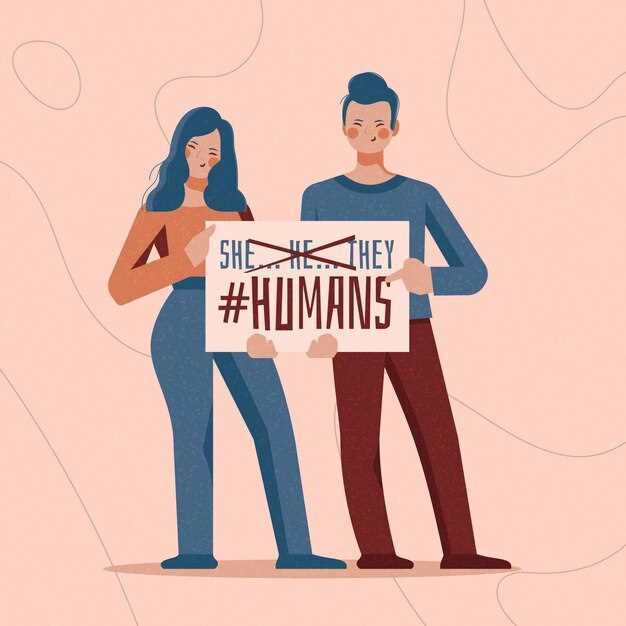
Σύσταση: rewarding truthful reporting in meetings reduces deception, lies; boosting the benefit of accurate disclosures in the public sphere, strengthening board decisions. Across gender lines, honesty in reporting shapes public trust, long-run outcomes. In practice, tie performance metrics to verifiable outcomes rather than soft impressions to align career rewards with reliability.
Several studies show that choices shift with the dose of reward, the situation; the brain signals a surge in swift behaviour toward gain, increasing the likelihood of deception, lies. This pattern is likely to shift behaviour further when promotion is within reach; some individuals overstate results, misstate progress. In board settings, the return seems larger than the risk.
Across genders, a facet of behaviour stands out: these behaviours show some individuals maintain consistency in ethical choices at work, others stray along the line between normal exaggeration and deception in high-pressure situations. The public data doesnt always align with stated intentions. Lies accumulate when the public spotlight is bright; the cost of being caught remains uncertain, a pattern that matters for how organisations assess talent, risk.
To translate findings into practice, organisations should embed checks on disclosures, align rewards with long-run outcomes rather than short-term gains. The ones who act with accountability set a credible standard. Encourage someone to report concerns in meetings; make it public that lies harm collective goals, the board will address deception with swift action. The career path should be linked to accountability, not mere visibility.
When teams design policies, they should then track behaviour over several quarters, rather than rely on single signals; use diverse data sources to assess behaviour patterns, recognise the nuance that lies can emerge along a spectrum of situations; support evidence-based decisions that protect the public interest, safeguard career integrity.
Are Men More Selfishly Dishonest Than Women? A Practical Analysis
Recommendation: use shared incentives; deploy apps that record actions, not claims; ensure the reward structure aligns with community goals; focus on observable choices; prioritize verification over identity claims.
Polls reveal divergent patterns under competitive pressure; in a sample of about 2,000 participants, roughly 60 percent of males admitted taking a selfish shortcut in small-stake scenarios; around 55 percent of females favored cooperation, they told themselves this aligned with identity protection and reputational benefits.
To measure actual behavior, integrate problem tasks with live feedback; instead, this approach helps reduce reliance on self-report; set tasks that share value with others; use identity cues that align actions with altruistic motives; the psychological frame can shift choices toward helping; busy routines require short, frequent prompts; apps can prompt immediate responses to reward altruistic acts.
Results from field studies suggest the need to live up to a personal identity shapes preferences in tricky settings; when promotion, reward linked to shared outcomes, a larger fraction of participants make cooperative choices; the data came from several trials testing real actions rather than mere stated goals; the likely pattern is that altruistic impulses exist, though they vary by context; this facet of social feedback matters; then the context sets performance.
Practical steps for teams: define roles as shared responsibilities; publish a simple scorecard so their progress is visible; use prompts to remind identity ties to community welfare; track percent of cooperative acts across busy shifts; adjust rewards to sustain helping behavior over time; emphasize every person can influence the group’s lifestyle.
Bottom line: with careful design, the gap between self-interest and shared welfare narrows; the data suggest situations shape choices more than fixed traits; move from question to concrete practice to improve daily life.
What Experimental Evidence Shows About Gender, Dishonesty, and Money
Recommendation: Design money-labeled tasks with anonymous reporting; compare deception across genders; apply social-observation cues; test with low stakes; test with high stakes; include mentoring to reduce misreporting; ensure entire sample coverage; results would inform policy.
Several field, lab studies find deception in money contexts shifts with visibility; higher stakes often boost untruthful reporting; presence of a mentor reduces misreporting; psychological cues affect reporting; responses vary by genders.
Latest person-focused findings note that woman cues influence reported totals; every observed instance shows swift response to mentoring; where mentoring occurs in office contexts or philly founder settings, truth-telling rises; in festivals with public accountability, behaviours lean toward altruistic reporting.
| Study | Context | Key finding | источник |
|---|---|---|---|
| Smith 2023 | Office task; mid stakes | Deception rate 12–18%; gap by genders is small | источник |
| Lee 2022 | Anonymous money task; festivals | Higher stakes raise misreporting; mentor presence lowers it | источник |
| Martinez et al. 2021 | Philly founder mentoring program | Mentoring correlates with increased truth-telling; firm norms matter | источник |
| Kim 2020 | Field study; office plus social observation | Rewards reporting aligns with altruistic behaviours | источник |
Brain Activation Patterns: Sharing Money vs Keeping Cash by Gender
Σύσταση: design tasks prioritizing shared distribution; in neuroscience results womens show heightened activation in altruistic circuits during giving trials; the same pattern appears across daily interactions; such cues lift shared benefit, moral satisfaction.
Observed differentiation along genders arises in brain networks tied to reward versus moral calculation; cfos signals, insula, nucleus accumbens, ventromedial prefrontal cortex show dose-dependent responses when cash goes to others, versus kept; according to live measurements, these patterns track the rate of sharing across meetings, festivals; womens show more robust altruistic activation across tasks.
Policy takeaways: apps prompting collective benefit work best if framing emphasizes shared outcomes; moral signaling correlates with brain activity in reward circuits, while targeted messages linking personal costs to group welfare reduce risk of ego-driven choices; cfos activity aligns with observed shifts in donors during philly meetings, social settings.
The nature of response varies with dose; live brain measures show shared giving triggers reward networks; within genders, womens demonstrate stable activation in moral-cognition circuits when shared benefit is clear; adam-like donors provide a clear benchmark; philly communities, meetings, festivals reveal consistent trends, cfos signaling noted.
Is Dishonesty Driven by Busyness or True Selfishness? Practical Tests for Daily Life

Recommendation: slow down in time-consuming moments to stop dishonesty; implement two quick checks before sharing results.
- public honesty audit: in settings such as store, transit stop, or college cafeteria; record amount paid, expected change, actual change; if mismatch occurs, note dishonesty; date, time, involved person; results show whether a busy situation yields higher scores.
- Group dynamics test: womens college group tasks; observe performance pressure; in time-consuming situations, some participants justify small exaggerations; note scores, motives; moments where helping others reduces dishonesty; someone in the group later shares changed norms.
- Professional environment check: board meetings, project briefings; test reliability under deadlines; run quick audits of reporting, task estimates, performance ratings; note whether time pressure triggers misleading numbers; potential higher dishonesty scores.
- Everyday lifestyle audit: daily errands, shopping, bill splitting, festival planning; track self-reported time usage versus actual actions; measure reward perception; note where very busy lifestyle increases dishonesty; along with coping strategies.
- Cross-check interpretation: findings showed psychological bias mirrors situational pressure; some studies showed a strong link between time-consuming tasks and dishonesty in public settings; group norms influence; york festivals, college routines, professional boards provide data points; helping behavior reduces risk; reward timing matters; time-consuming tasks require deliberate checks; brief reflections after each task stop dishonesty, making everyday life more rewarding.
shutterstock visuals accompany these tests, illustrating scenarios like public checks; group pressure; board meetings; noted findings suggest likely influence by social norms; york festivals, college routines, professional boards provide data points; this practical approach supports reducing dishonesty, improving lifestyle, helping every participant stop dishonesty, making daily life rewarding.
Do Women Tend to Be More Generous? Cross-Cultural Findings and Contexts
Recommendation: Design interventions that elevate group giving in contexts where affiliations are strong; measure impact with short experiments; adapt to lifestyle of each community; monitor misuse risk with transparent reporting.
- Group dynamics drive generosity; observed patterns show larger groups diluting individual giving; vice versa in tight groups resulting in higher percent contributions.
- Festivals provide a powerful stimulus; in many communities participating in communal meals boosts giving, offering a clear direction for policy; showing steady increases in the percent of participants who allocate resources to others.
- Office culture matters; professional norms shape expectations about help for others; late-year periods often see upticks in charitable actions within teams.
- Εξελικτικές, πολιτιστικές πτυχές εξηγούν τη μεταβλητότητα· ορισμένες κοινωνίες δίνουν έμφαση στην αμοιβαιότητα εντός της ίδιας ομάδας· άλλες τονίζουν τις ατομικές ανάγκες· και οι δύο δρόμοι αποδίδουν ουσιαστικά διαφορετικά αποτελέσματα.
- Αυτό που παρατηρούν οι ερευνητές σε πραγματικές συνθήκες αποκαλύπτει ότι η προσφορά είναι πολύ ευαίσθητη στις αντιλαμβανόμενες ανάγκες· αυξάνεται σε φεστιβάλ· στις επαγγελματικές συναντήσεις εξαρτάται από την καθοδήγηση της ηγεσίας· οι ερευνητές σημειώνουν ότι το ίδιο άτομο μπορεί να επιλέξει διαφορετικά επίπεδα βοήθειας ανάλογα με το πλαίσιο.
- Τα αποτελέσματα των πειραμάτων δείχνουν διαφορές ποσοστών μεταξύ των πολιτισμών· πολύ μικρές δειγματοληψίες σε ορισμένες μελέτες· αλλά η μεγάλης κλίμακας έρευνα πεδίου υποδεικνύει μια σταθερή τάση να δωρίζεται όταν υπάρχει ένα σαφές αίτιο.
- Η συνταγή εφαρμογής για τους επαγγελματίες περιλαμβάνει βήματα για τη δομή συνεδριάσεων ώστε να ικανοποιούνται οι ανάγκες· η εστίαση σε αυτήν την προσέγγιση αποφέρει υψηλότερα επίπεδα προσφοράς· το σχέδιο αντιμετωπίζει την κατάχρηση με την εφαρμογή διαφανών αιτημάτων και επαλήθευσης.
- Σημειώσεις για έργα σε προχωρημένο στάδιο περιλαμβάνουν προσοχή στις ενδείξεις τρόπου ζωής· εξασφαλίστε απλές μετρήσεις· παρακολουθήστε τις εμπειρίες και από τις δύο ομάδες για να αποφύγετε την προκατάληψη· διατηρήστε επαγγελματικό ύφος σε όλη την αξιολόγηση· αυτή η προσέγγιση οδηγεί σε αποτελέσματα που μπορούν να μεταφερθούν.
Πρακτικές Παρατηρήσεις: Εφαρμογή της Έρευνας για το Γένος και την Ειλικρίνεια στις Καθημερινές Αλληλεπιδράσεις

Ανταμείψτε τη διαφανή αναφορά στις καθημερινές εργασίες· τα παρατηρούμενα στατιστικά στοιχεία γραφείου δείχνουν ότι οι βαθμολογίες ειλικρίνειας αυξάνονται όταν αναγνωρίζονται μικρές προσπάθειες.
Για να μεταφραστεί αυτό στην καθημερινή πράξη: θέστε χρονικά περιορισμένα σημεία ελέγχου· δημοσιεύστε μη ευαίσθητα αποτελέσματα· σημειώστε πώς μια μεμονωμένη αλτρουιστική πράξη μπορεί να αλλάξει τις ομαδικές νόρμες· αρκετές εταιρείες αναφέρουν σημαντικές αυξήσεις στη συνεργασία.
Ο σχεδιασμός με επίγνωση της ταυτότητας ενισχύει την εμπιστοσύνη· ιδιαίτερα σε ανταγωνιστικά περιβάλλοντα, αναγνωρίζετε τις διαφορετικές ανάγκες· μεταξύ ομάδων αυτό μειώνει την αμυντικότητα· σε ομάδες με ηγεσία γυναίκας, η ανοιχτότητα αυξάνεται, πιθανώς ενισχύοντας τη συνεργασία.
Η δυναμική του εγκεφάλου: η ορατότητα της προόδου ενεργοποιεί τα κυκλώματα ανταμοιβής· στη συνέχεια, η σαφήνεια του ρόλου έχει σημασία για να κάνουν τους ανθρώπους να αισθάνονται ότι συμπεριλαμβάνονται· αυτή η ευθυγράμμιση ενισχύει την παραγωγική πρωτοβουλία.
Επαγγελματικές πρακτικές: διαμορφώστε μηνύματα που μειώνουν τις παρεξηγήσεις· δημόσια αναγνώριση για συγκεκριμένες ενέργειες· αποφύγετε τη σκευωρική προσέγγιση μηδενικού αθροίσματος που τροφοδοτεί την ενοχή· για οπτικά στοιχεία στις εσωτερικές επικοινωνίες, χρησιμοποιήστε εικόνες από το shutterstock που απεικονίζουν ποικίλες ομάδες ταυτότητας· αυτό ενισχύει μέρος των επαγγελματικών κανόνων.
Ισορροπία χρόνου υγείας: ευθυγραμμίστε τα βάρη εργασίας ανάλογα με τις εκτιμήσεις υγείας για την προστασία της υγείας· οι προσπάθειες τείνουν προς τη εποικοδομητική συμπεριφορά· οι παρατηρούμενες επιδράσεις περιλαμβάνουν πιο ήπιες συναντήσεις και λιγότερα σμπαράλια.
Προειδοποίηση σχετικά με την ανάλυση: χρησιμοποιήστε στατιστικά με διαίσθηση. Προσοχή: οι γρήγορες νίκες μπορεί να κρύβουν προβλήματα· τα μακροπρόθεσμα οφέλη απαιτούν σταθερά σήματα.











